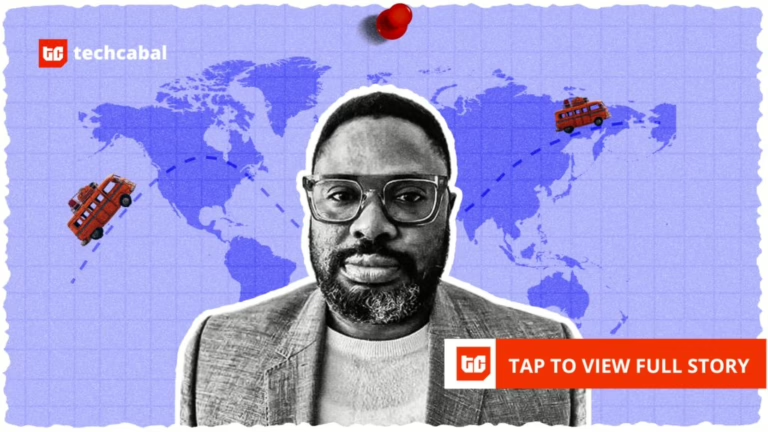Transforming African Logistics: The Rise of Zido and Samuel Ajiboyede’s Vision
In the midst of the global disruption caused by the COVID-19 pandemic in 2020, Samuel Ajiboyede embarked on a bold entrepreneurial venture that would soon reshape the logistics landscape in Africa.
Identifying a Critical Gap in Logistics Infrastructure
Recognizing the inefficiencies and infrastructural challenges plaguing the logistics sector, Ajiboyede launched Zido, a cutting-edge digital platform designed to streamline supply chain procurement and logistics management. Within months of its inception, Zido secured a landmark $10 million contract, marking a significant milestone for the startup.
Ajiboyede recounts the serendipitous nature of this breakthrough: “I reached out to a contact on LinkedIn, introduced myself and my business, and within hours, we were in a meeting. He brought his director along, and from that moment, everything accelerated. That initial contract remains active today.”
The deal involved facilitating the transportation of large cargo shipments between branches of a major Nigerian corporation. While Zido won the contract, it relied on a network of service providers to execute the logistics and ensure seamless delivery.
This early success propelled Zido into one of Africa’s most challenging industries, where many entrepreneurs tread cautiously before scaling operations.
Innovating in the Digital Supply Chain Space
Though Zido’s outward operations resemble a traditional logistics company-with trucks and cargo movement-Ajiboyede emphasizes that at its core, Zido is a technology-driven enterprise. The company encompasses diverse divisions including logistics, artificial intelligence, fintech, and a confidential patented renewable energy solution aimed at extending the range of electric vehicles.
Zido’s logistics division operates through two primary frameworks: a joint venture model where Zido finances operations while partners operate under their own brands, and a franchise-like aggregation model where independent truck owners join Zido’s platform to serve corporate clients.
This dual approach enables Zido to cater to multinational corporations such as Unilever and Lafarge, while also managing inventory and distribution for consumer goods manufacturers. By integrating procurement, warehousing, and transportation, Zido positions itself as a comprehensive digital supply chain company rather than a conventional trucking service.
Challenges in Africa’s Logistics Sector
The logistics industry in Africa is notoriously capital-intensive and fraught with risks. Issues such as poorly maintained vehicles, underpaid and unreliable drivers, and frequent contract breaches are common. Many startups enter the sector only to exit prematurely due to these hurdles.
Ajiboyede, now based in the UK, learned early that the industry is rife with opportunists willing to cut corners. “Founders must develop resilient systems that can absorb these risks rather than collapse under pressure,” he advises.
Adopting a “zero financing” strategy, Ajiboyede prioritizes securing contracts before seeking funding, using signed agreements as leverage to obtain bank financing. This approach was validated by the initial $10 million contract, which opened doors to financial backing and became a blueprint for Zido’s growth.
Adapting Across Borders: Lessons from Nigeria to the UK
Operating in both Nigeria and the UK has taught Ajiboyede the importance of tailoring business models to local contexts. “What succeeds in Nigeria may not translate directly to the UK,” he explains, highlighting differences in labor laws, contract norms, and market dynamics.
Zido maintains localized teams and contracts in each country to ensure compliance and mitigate legal risks. For instance, a Nigerian client’s contract cannot be automatically extended to the UK without renegotiation. This compartmentalized structure, while complex, safeguards the company’s operations.
Ajiboyede stresses that the core challenge is not merely infrastructure or vehicles but identifying and addressing the unique gaps within each market. In Nigeria, this might mean improving operator financing; in the UK, it could involve enhancing efficiency or navigating regulatory frameworks.
Embracing Location Independence as a Founder
In 2023, Ajiboyede relocated to the UK with his family on a Global Talent Visa, seeking personal stability after years of frequent travel between continents. Despite this move, he remains deeply involved in Zido’s operations across Nigeria, the UK, the US, and China, exemplifying a truly location-independent leadership style.
His migration reflects a broader trend: approximately one-third of successful Global Talent Visa applicants from 2019 to 2023 were Nigerian entrepreneurs aiming to grow their ventures in supportive environments like the UK.
Ajiboyede has integrated himself into the UK tech ecosystem, securing a position on the board of techUK within two years-a prestigious organization that bridges the technology sector and government policy. “Being part of techUK, alongside giants like Microsoft and Google, and influencing national tech strategies is a tremendous honor,” he shares.
His proactive networking, strategic social media presence, and sponsorship of industry events established his reputation in the UK even before his arrival, facilitating his smooth integration and leadership role.
Moreover, Ajiboyede has championed diversity within the UK tech community, advocating for increased representation of Black professionals and influencing organizational culture.
Insights from Navigating a High-Risk Industry
While operating in the UK offers a more meritocratic environment-where contracts are awarded based on track record rather than personal connections-Ajiboyede acknowledges that logistics remains a demanding sector globally. Trucks break down, contracts falter, regulations evolve, and capital requirements are substantial.
He believes that Africa’s logistics transformation hinges on stronger collaboration between government infrastructure and private enterprises. “Ports, railways, and highways cannot function as isolated government silos. Integrating private sector innovation will drive efficiency and scalability,” he asserts.
The UK’s thriving startup-government partnership serves as a model for Nigeria and other African nations to emulate.
Reflecting on Zido’s journey, Ajiboyede credits his personal brand as much as his business acumen. His LinkedIn presence was instrumental in landing the initial $10 million contract, and his visibility paved the way for his role in techUK.
“Influence is a form of currency,” he emphasizes. “It attracts contracts, partners, and investors. Without it, even the most promising ideas can falter.”
Don’t miss out! Moonshot by TechCabal returns to Lagos on October 15-16, featuring Africa’s leading founders, creatives, and tech innovators. Early bird tickets are now 20% off-secure yours today at moonshot.techcabal.com.



















0 Comments